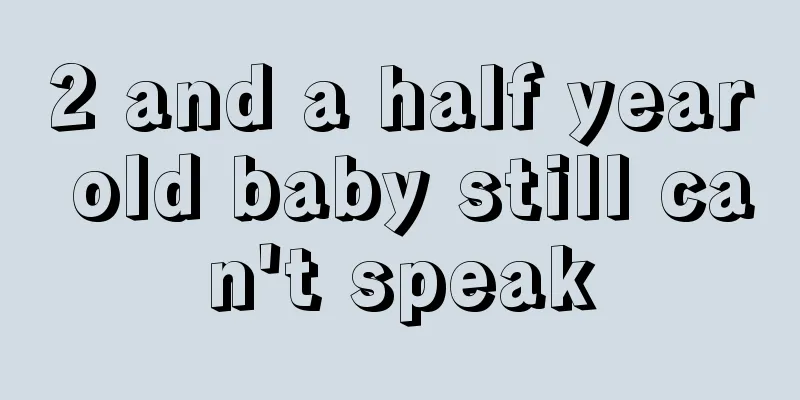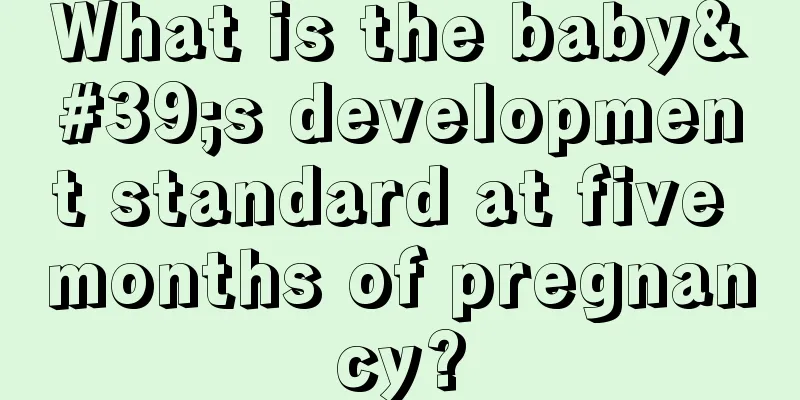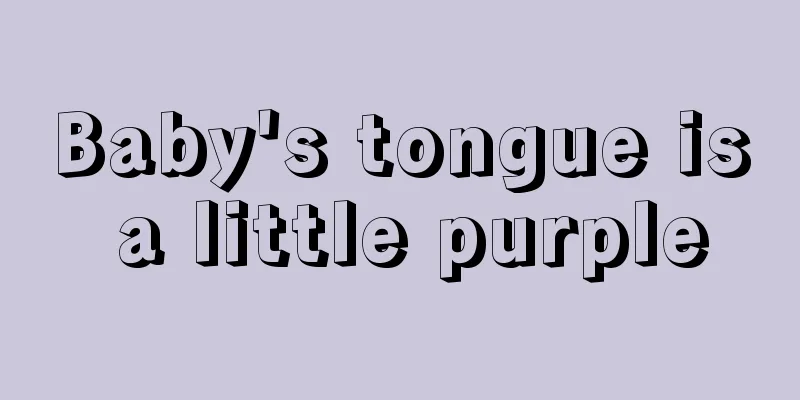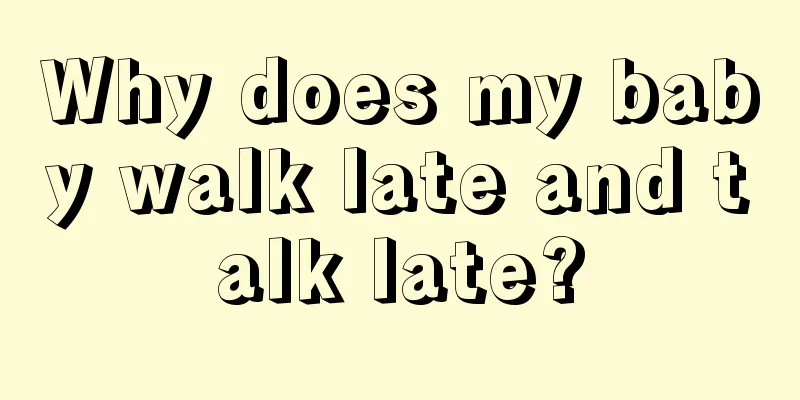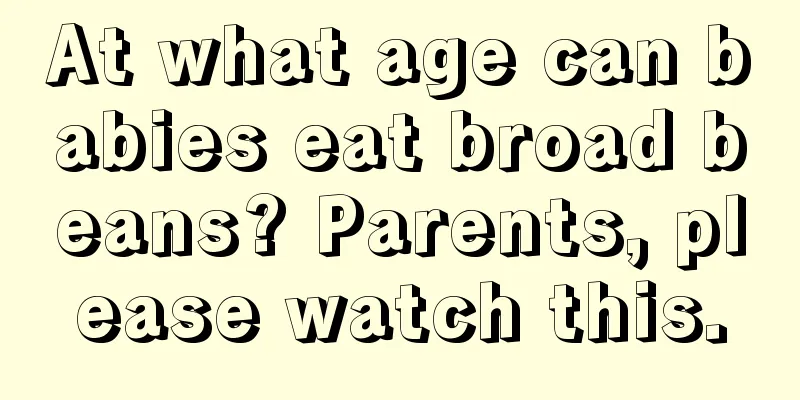Symptoms of a cold in a baby over 1 month old
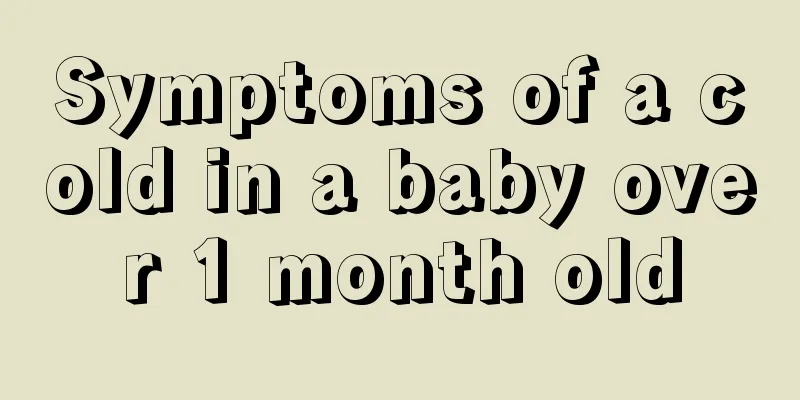
|
Parents will be very worried if their baby catches a cold, especially when the baby is young, their immunity is relatively poor, and they will recover more slowly after a cold. Moreover, babies generally need to use as few medications as possible, otherwise the side effects of the medications will have a great impact on the baby's body. If a baby catches a cold, he or she will show various cold symptoms, and parents should pay more attention. So, what are the symptoms of a cold in a baby over one month old? What should I do if my one-month-old baby catches a cold? This problem must be taken seriously. Take your baby to the hospital and undergo some examinations as required by the doctor to determine the cause of the cold. If it is a viral cold, there is no specific medicine. The main thing is to take good care of the baby and alleviate the symptoms. Generally, it will be cured after 7 to 10 days. If it is caused by bacteria, be sure to follow the doctor's instructions and take the medicine on time and in the correct dosage. In order to make their children recover faster, some mothers often increase the dosage of medicine on their own. This is absolutely not allowed, otherwise it will backfire. In addition, the baby is too young to blow his nose by himself. The best way to let the baby breathe smoothly is to help the baby blow his nose. You can also apply a little Vaseline in the baby's external nostrils, which can often relieve nasal congestion; if the mucus is thick, you can try using a nasal aspirator or twisting medical cotton balls into small sticks to pick out the mucus in the nose; if the nasal congestion has caused difficulty in feeding, you can use saline nasal drops 15 minutes before feeding. After a while, use a nasal aspirator to suck out the saline and mucus in the nasal cavity, and the baby's nose will be unobstructed. What are the symptoms of a cold in a one-month-old baby?
Newborn colds are mostly transmitted by people they come into contact with. The clinical symptoms of a baby's cold vary in severity. Mild cases include low fever, nasal congestion, runny nose, sneezing, mild cough, mild vomiting or diarrhea, etc. The baby's mental state is good, the throat is slightly red, the nasal mucosa is congested and edematous, the secretions increase, and the submandibular or cervical lymph nodes may be slightly swollen. In severe cases, the body temperature is high, often above 39.0℃, and there are symptoms such as weakness, coughing, headache, vomiting, sore throat, chills, fatigue, and decreased appetite. You can breastfeed more and rest more. When facing the problem of baby catching a cold, mothers must not take it lightly, because if it is not handled in time, it may cause other problems, such as fever or inflammation. So if mothers really don’t know what to do, they must follow the doctor’s instructions and nursing advice. Never increase the baby’s medication dosage by yourself. This is not a good thing for the baby! |
<<: Early symptoms of cervical spine injury in infants
>>: What are the symptoms after chickenpox vaccination?
Recommend
Can children eat grasshoppers?
Grasshopper refers to cicada pupa, which is a nam...
Why do children often bite their fingers?
If a baby is just born, it is normal for him to b...
What to do if your baby has a fever and chills
It is very common for babies to have a fever in d...
What is the best thing for a child to eat after vomiting?
The physical health of children is one of the thi...
What is the normal range of a child's pulse?
The healthy growth of children is what parents ar...
What happened if red spots suddenly appeared on my child’s face?
Children's skin is very delicate, so they oft...
Parents should learn to judge the symptoms of worms in children’s stomachs!
If personal hygiene is not taken care of, childre...
What should I do if my baby’s belly button is a little thick? How to prevent navel suppuration in newborns?
Babies are very fragile and may suffer from vario...
What is the cause of suppuration after BCG vaccination in infants?
In order to prevent tuberculosis, newborn babies ...
Primary school third grade schedule
The third grade is an important year in elementar...
What to do if your child has chickenpox and a fever
When a child gets chickenpox, parents must take g...
Treatment of burns in children
Children's physical health is what parents ca...
What factors cause tooth decay in children?
There are many reasons for tooth decay, which is ...
What should I do if my baby has horse teeth?
When talking about horse teeth, everyone will qui...
What to do if a child has a cold, cough and phlegm
I believe that all parents know that it is very d...
